Post
A catch
Save a catch to start your fishing logbook. You will be able to to share it with the community if yo want!
A fishing trip
Post an ad to go fishing with other fishermen
Save a catch to start your fishing logbook. You will be able to to share it with the community if yo want!
Post an ad to go fishing with other fishermen
Share a thought, a question with the community
My favorite cities
×Keep your rods ready for New-Florence in Westmoreland. The fishing forecast is currently 4.5. The most caught fishes here are the humpback chub, the pacific lamprey, the largemouth bass and the blueback herring. Come try the most famous fishing techniques like the fishing bream from a dock or jetty, surfcasting, deep-sea fishing or angling - using floats.
Our fishing forecast of New Florence indicates the best time to go fishing in this city.
The Humpback Chub
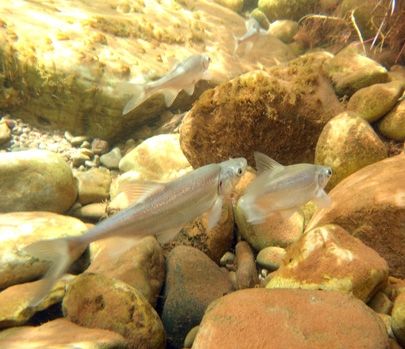
The Humpback Chub belongs to the Cyprinidae family. The maximum size recorded was 38 cm. It has a lifespan of 30 years. It spawns from April to June. It is a protected species, so the angling is prohibited. The body is almost entirely without a scale, retaining only 80 mid-lateral scales along the lateral line. The scales are deeply embedded on the surface of the fish, especially on the hump. The fish has a very streamlined body, with a thin caudal peduncle and a deeply forked tail. The fins are large and curved, and the origin of the ridge is approximately equal distance from the snout and base of the caudal fin. The mouth is lower and overhung by the muzzle. The pharyngeal arch is small, with a small lower branch. The back is pale olive grey, the sides silvery and the belly white. The dorsal fin generally has nine rays and the anal fin has 10 or more.
The Humpback Chub is a famous fish you can catch in New Florence.The Pacific Lamprey
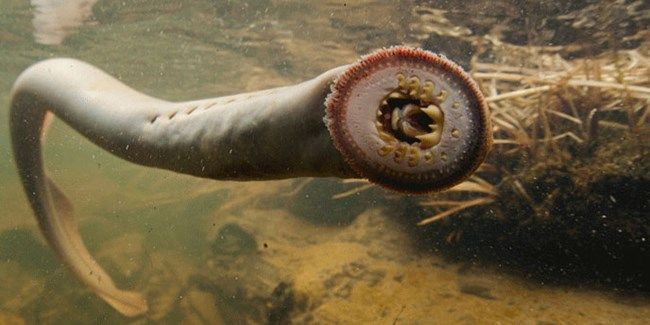
The Pacific Lamprey belongs to the Petromyzontidae family. The adult size of the pacific lamprey can reach 80 cm. It can live up to 5 years. The spawning period depends on the location. It can be caught between July and September when it enters freshwater. The Pacific Lamprey differs from other lamprey species in that it has three large, sharp anterior teeth located on the supraoral bar. Like all lampreys, they have seven breathable pores on each side of their bodies and a large suction disc that acts as a mouth. They are dark blue at the top and silver or white at the bottom. During the breeding season, Pacific lampreys turn reddish brown and the appearance of the sexes begins to differentiate as a pseudo-anal fin develops on the female. Their larvae are difficult to distinguish from those of other lamprey species.
The Pacific Lamprey is a famous fish you can catch in New Florence.The Largemouth Bass
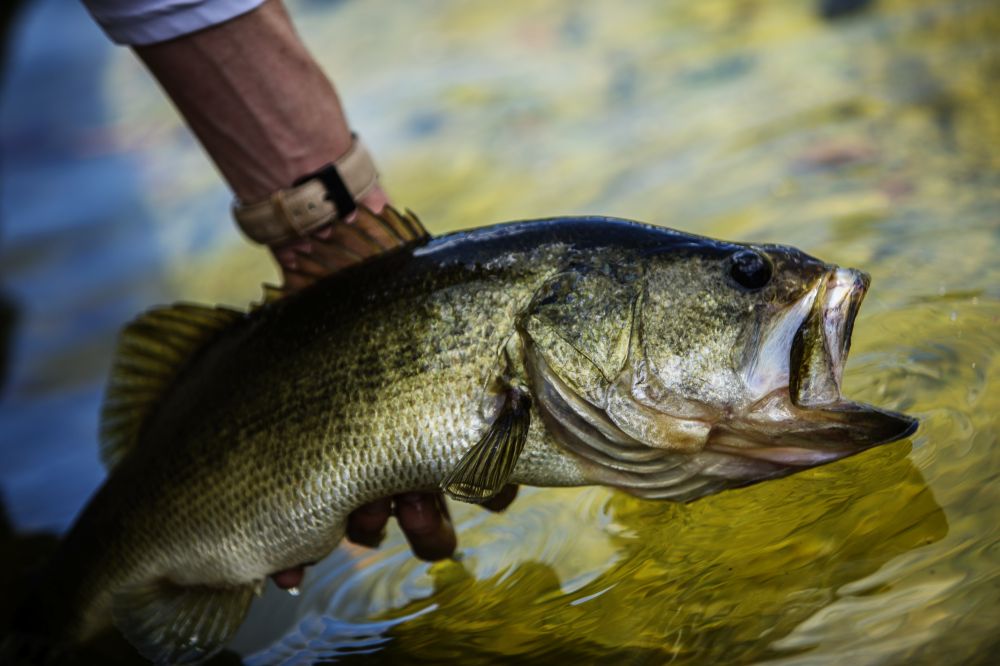
The Largemouth Bass belongs to the Centrarchidae family. It has an average size of 45 cm but may reach 60 cm. The maximum recorded weight was 10,09 kg. It has a lifespan of 6 years. It breeds between February and July. It can be fished all year round. Largemouth bass has a large mouth with a slightly oblique mouth. Its body is thin to robust, slightly flattened laterally and of oval cross-section. The corner of the mouth extends beyond the eye. The back and head are dark green to light green in color with lighter sides and a whitish belly and underside. A large lateral band can be seen from the snout through the eyes to the base of the tail. Towards the tail, there is a series of spots of different sizes. These spots become a solid and uniform band on the caudal peduncle. The eye is golden brown. Vertical fins slightly pigmented, generally clear paired fins; caudal fin in young and adult. Adults in muddy lakes are dark olive brown to black, with marks that are difficult to distinguish. Males in breeding condition tend to be darker in color.
The Largemouth Bass is a famous fish you can catch in New Florence.The Blueback herring
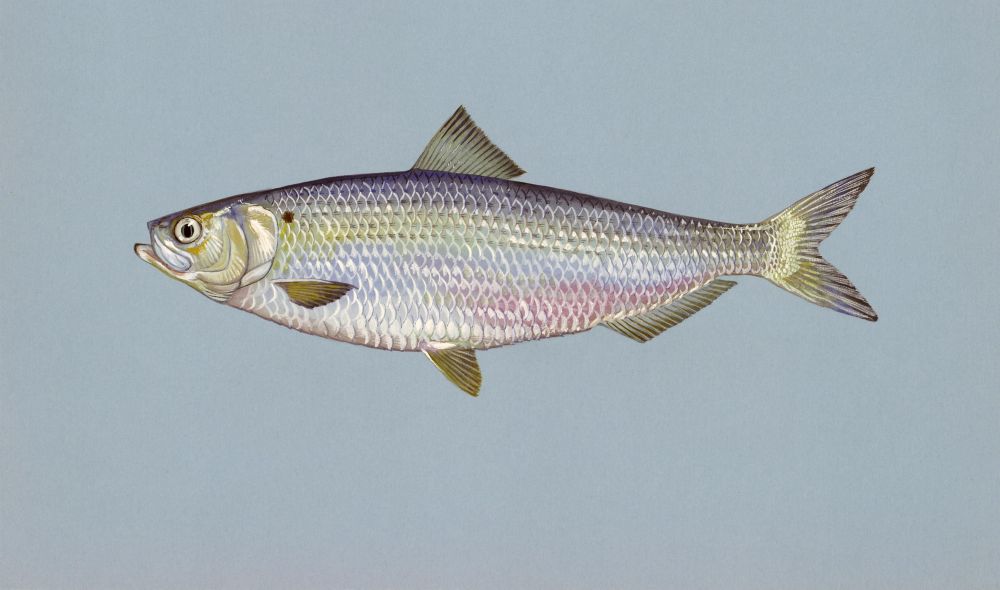
The Blueback Herring belongs to the Clupeidae Family. They reach a maximum size of about 40 centimeters and are assumed to live up to 8 years. They spawn from mid-March to the end of May. The Blueback herring can be fished all year round. These fish are silvery in color, have a series of scutes along their bellies and are characterized by a deep blue-green back. What distinguish this fish the most from other species is the black to dark color of its peritoneum (the mucous membrane of the abdominal cavity). It is one of the "distinctive" North American shads. They are often confused with alewives because it is difficult to differentiate between blue shad and alewife and, together, these two species are often considered collectively as "river herring". Female have larger eyes, greater body depth and a pearl to peritoneal white lining.
The Blueback herring is a famous fish you can catch in New Florence.The Bull trout
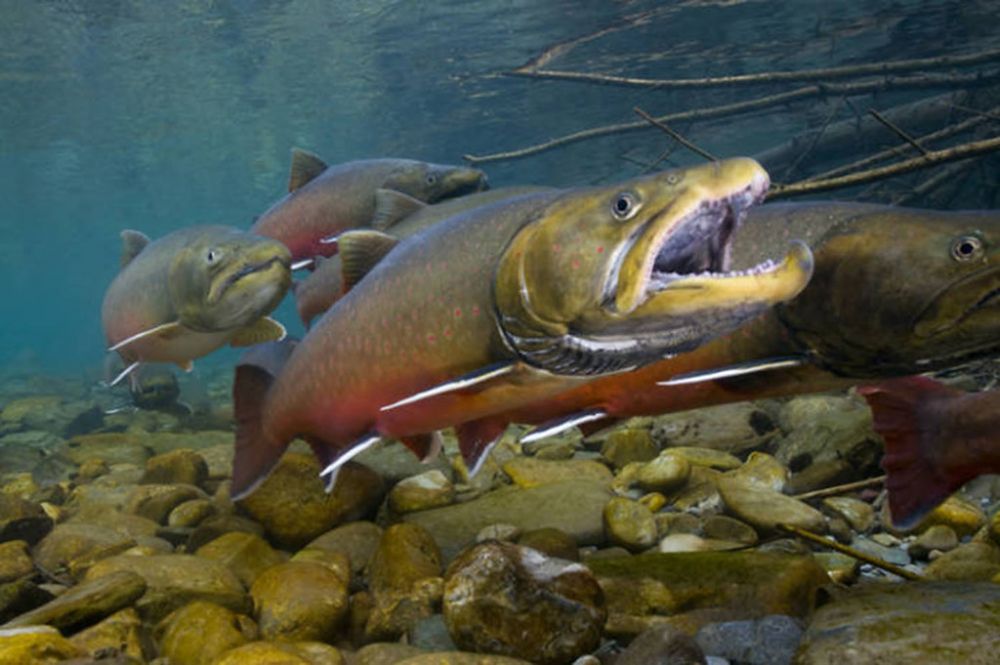
The Bull trout belongs to the Salmonidae family. It can measure up to 103 cm long and weigh up to 14.5 kg. It can live for a dozen years. It breeds from July to December. It can be fished from June to February. Like other arctic char species, the fins of a bull trout have white leading edges. Its head and mouth are exceptionally large for salmonidae, which gave it its name. Bull trout up to 103 cm long and weighing 14.5 kg have been recorded. Bull trout can be migratory, moving through major river systems, lakes and the ocean, or they can be resident and remain in the same river all their lives. Migratory bull trout is generally much larger than resident bull trout, which rarely exceeds 2 kg. Bull trout differs from brook trout (S. fontinalis) in the absence of distinct spots on the dorsal fin, as well as yellow, orange or salmon spots on the back, as opposed to red spots with blue halos on the trout stream. Bull trout do not have the deep-dug caudal fin of lake trout (S. namaycush, another Arctic char).
The Bull trout is a famous fish you can catch in New Florence.Our fishing forecast of New Florence indicates the best time to go fishing in this city.
Our fishing forecast of New Florence indicates the best time to go fishing in this city.
Our fishing forecast of New Florence indicates the best time to go fishing in this city.
